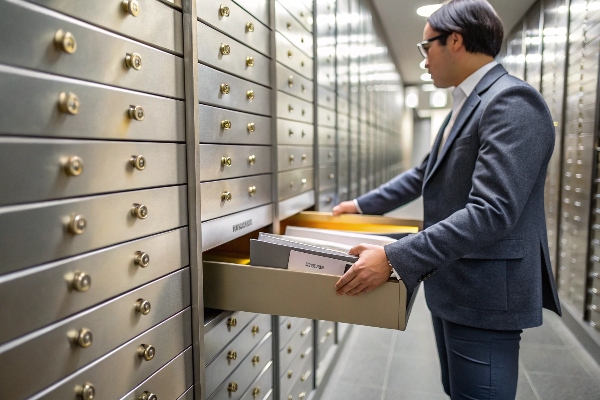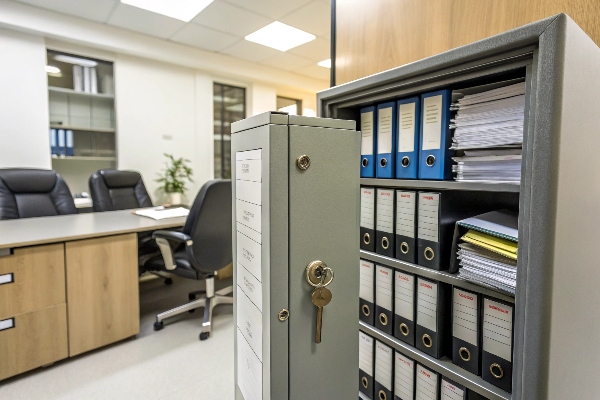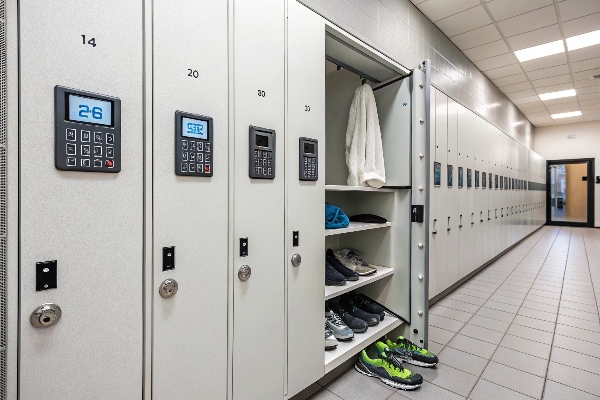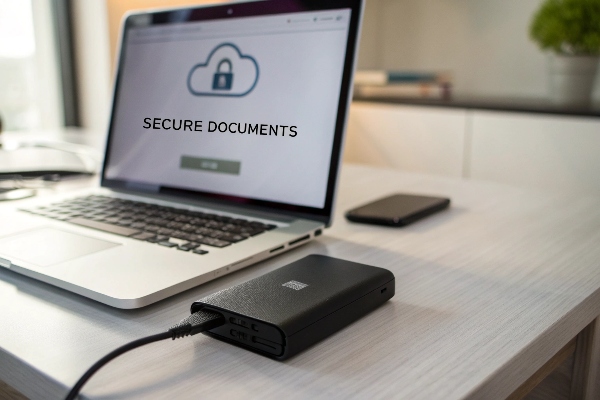
Storing important documents in a locker provides a secure, organized, and accessible way to protect essential records. Whether at home, in the workplace, or in a bank, lockers safeguard items like birth certificates, passports, and financial statements from loss, damage, or unauthorized access.
People store important documents in lockers to protect them from theft, damage, and misplacement while ensuring they remain easily accessible when needed.
Why Is It Important to Store Important Documents?

Important documents, such as identification papers, financial records, and legal contracts, require protection to prevent loss or misuse. Proper storage ensures these documents are readily available when needed and safeguarded against potential risks.
Storing important documents properly prevents loss, theft, and damage, ensuring you can access them for legal, financial, or personal purposes.
Reasons to Store Documents Securely:
-
Protection from Theft:
- Securing documents in a locker reduces the risk of unauthorized access or theft.
-
Preservation:
- Proper storage prevents wear, tear, or damage from environmental factors like moisture or heat.
-
Organization:
- Keeping documents in one place ensures easy retrieval when needed for legal or financial matters.
-
Disaster Preparedness:
- Fireproof and waterproof lockers protect documents in case of natural disasters.
By storing documents securely, you can avoid the complications and stress of replacing lost or damaged records.
Why Is It Important to Have a Locker?

A locker serves as a personal storage space that provides security, organization, and peace of mind. Whether it’s for personal items or sensitive documents, lockers protect against theft, loss, and environmental damage.
Having a locker is essential for securing valuables, maintaining privacy, and keeping belongings organized in a designated space.
Benefits of Having a Locker:
-
Security:
- Lockers offer a physical barrier against unauthorized access, especially for high-value or sensitive items.
-
Convenience:
- A dedicated storage space makes it easy to access items when needed.
-
Durability:
- Lockers are often built to withstand environmental factors, including fire or water.
-
Privacy:
- Protect personal belongings and sensitive information from prying eyes.
-
Organization:
- Lockers help keep items like documents, keys, and gadgets neatly arranged and easy to find.
A reliable locker is an investment in safety and organization for your belongings.
Where Do Most People Keep Important Documents?

The storage of important documents depends on personal preferences, security needs, and available resources. While some people use traditional home safes, others prefer bank lockers or digital backups for added protection.
Most people store important documents in home safes, bank lockers, or filing systems, while others use digital backups for extra security.
Common Storage Options:
-
Home Safes:
- Fireproof and waterproof safes provide secure storage for passports, wills, and financial records.
-
Bank Lockers:
- Ideal for long-term storage of critical documents, such as property deeds or valuable certificates.
-
Filing Cabinets:
- Organized filing systems are commonly used in homes and offices for everyday document access.
-
Digital Backups:
- Scanning and storing documents in secure cloud storage ensures they remain accessible even if physical copies are lost.
-
Dedicated Lockers:
- In workplaces, lockers often serve as secure storage for professional documents and personal items.
Storing documents in multiple locations, including both physical and digital formats, ensures their safety and accessibility under various circumstances.
Conclusion
People store important documents in lockers to protect them from theft, loss, and damage while keeping them organized and accessible. Lockers offer security and peace of mind, ensuring that critical items like financial records or legal documents are always safe. By choosing appropriate storage solutions, such as home safes, bank lockers, or digital backups, individuals can safeguard their most valuable records and avoid the hassle of replacing them.

